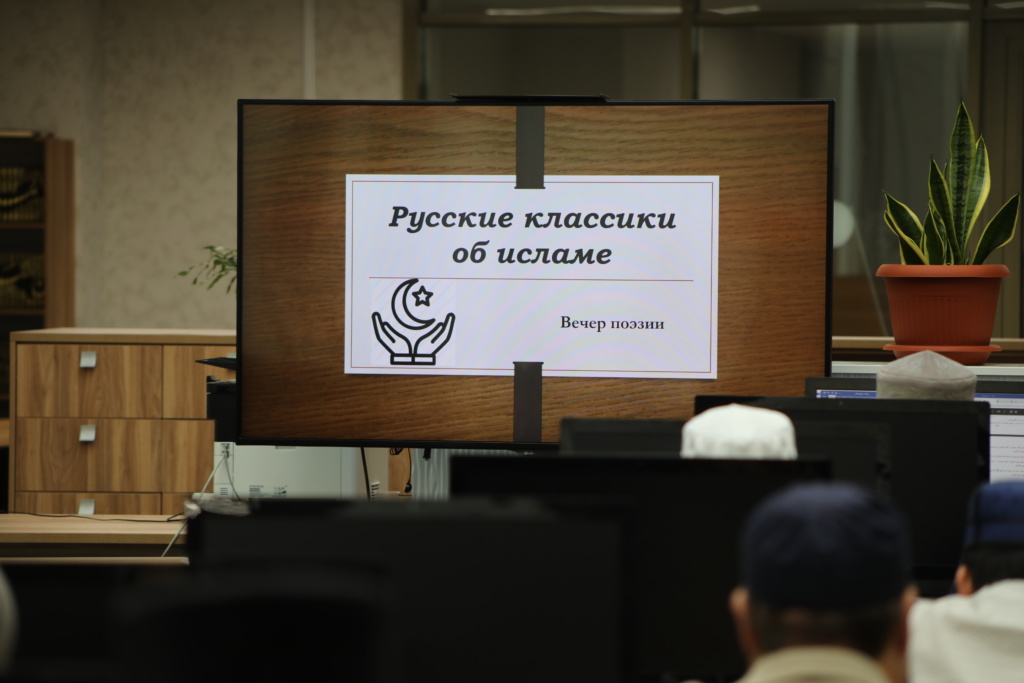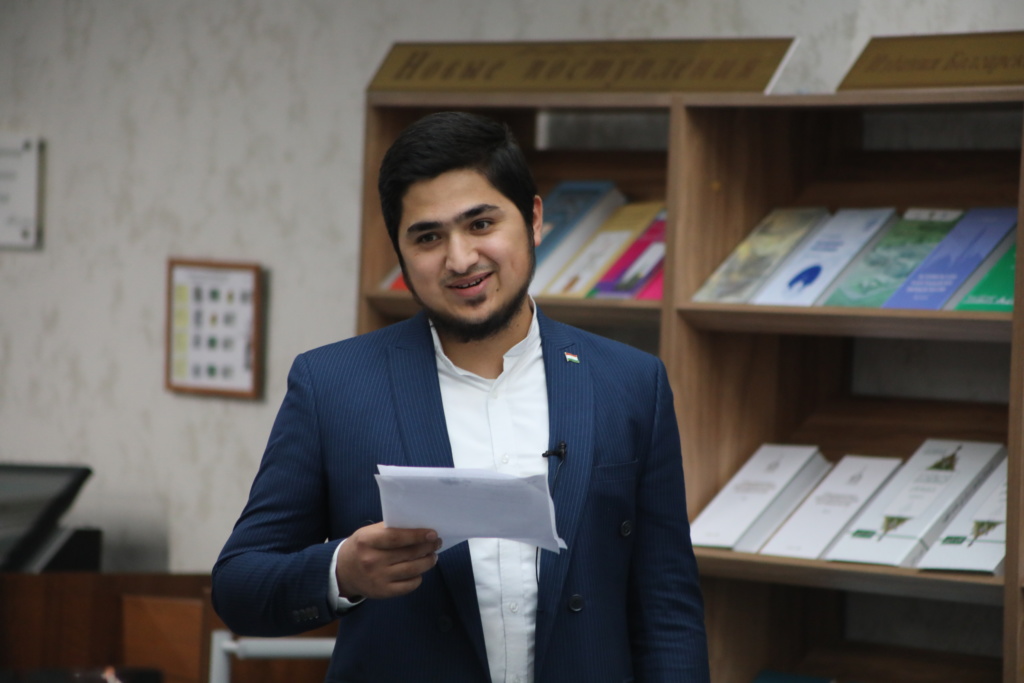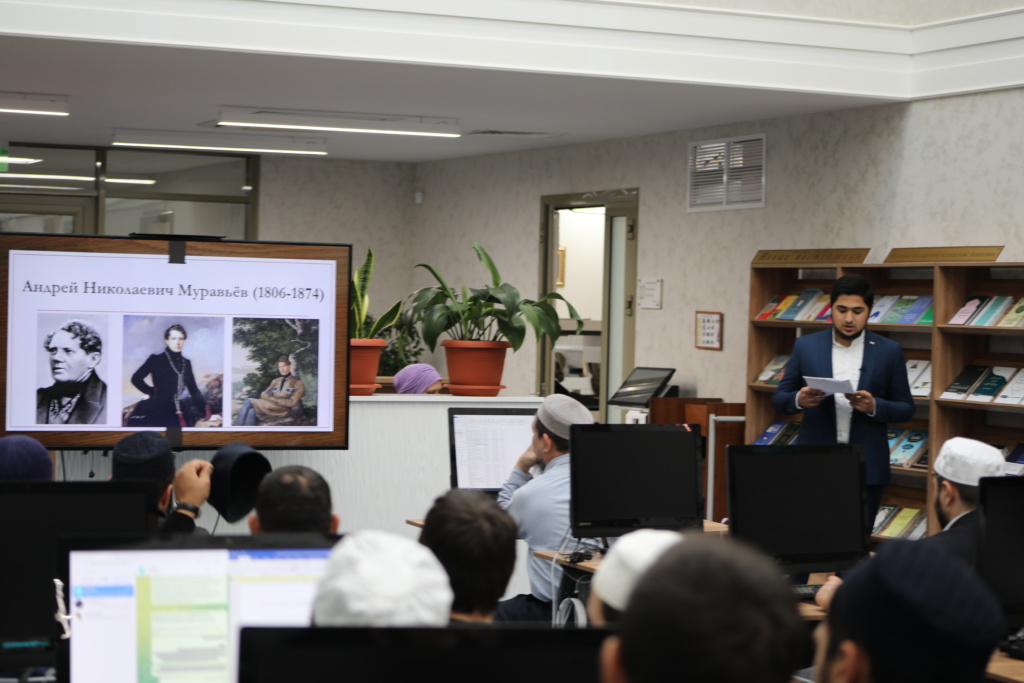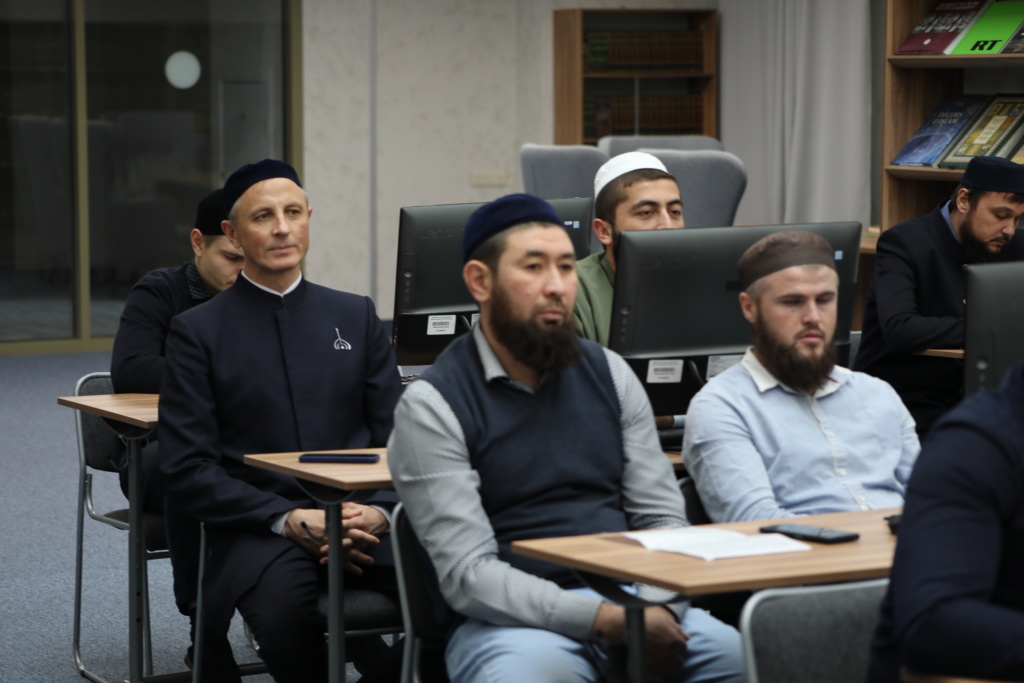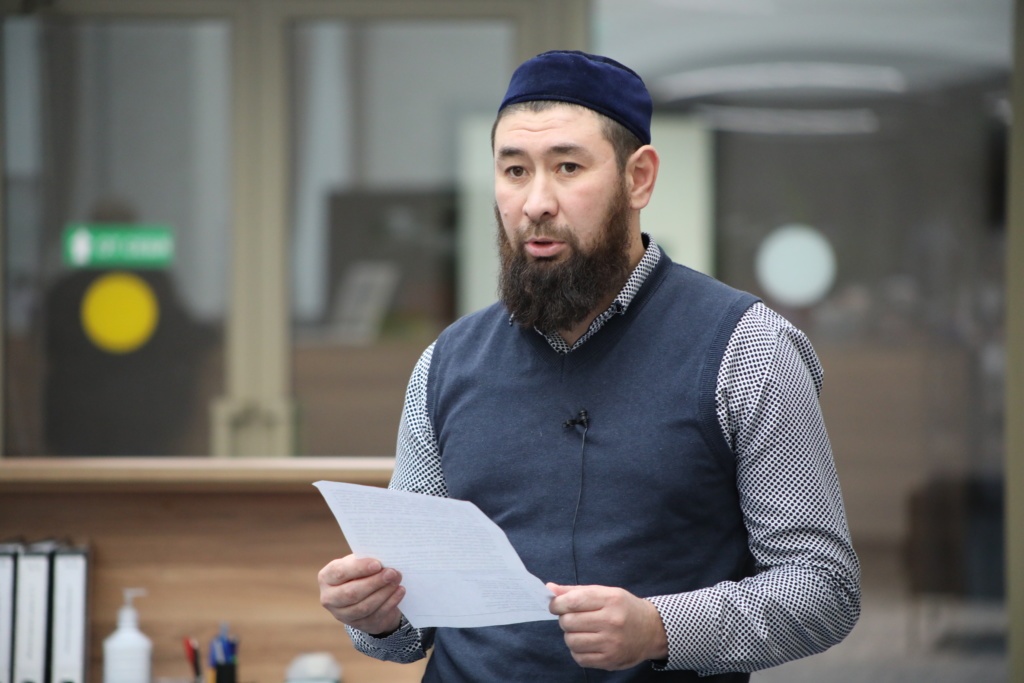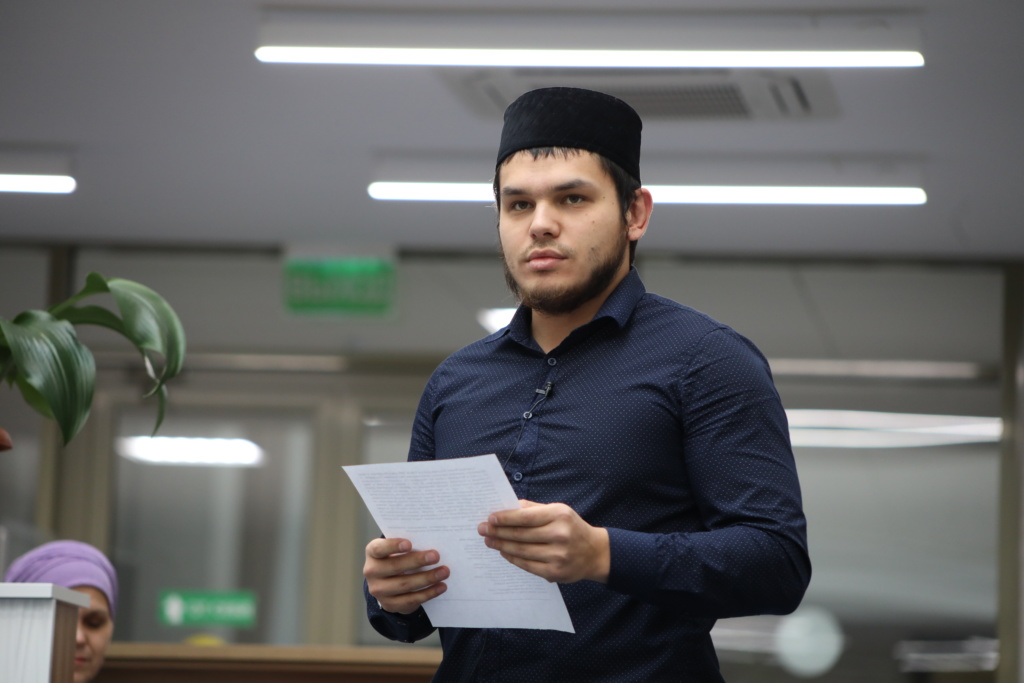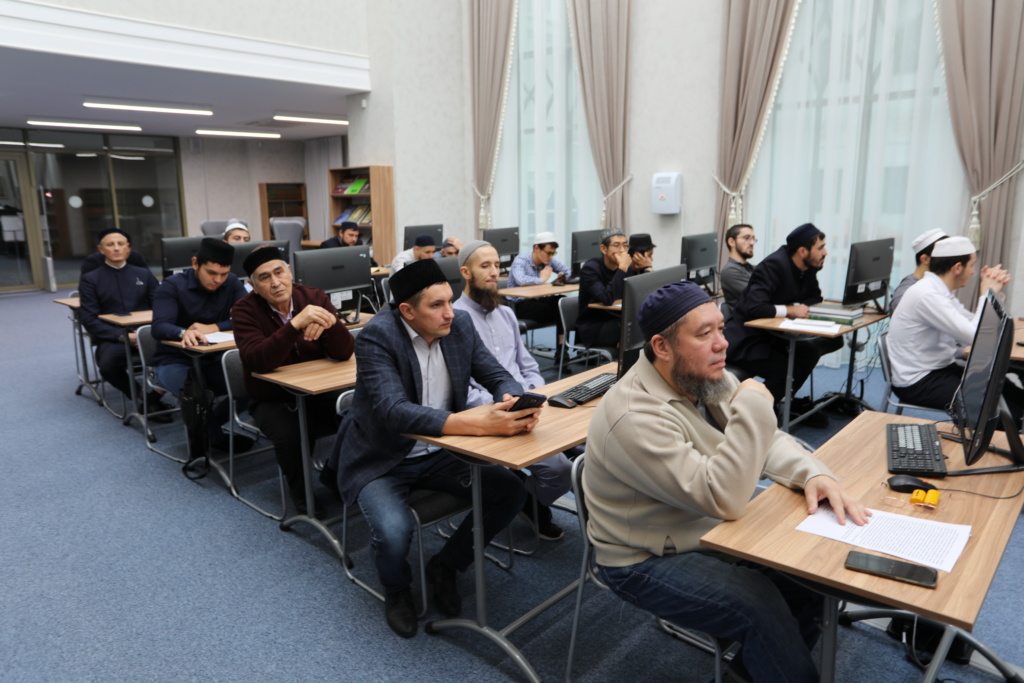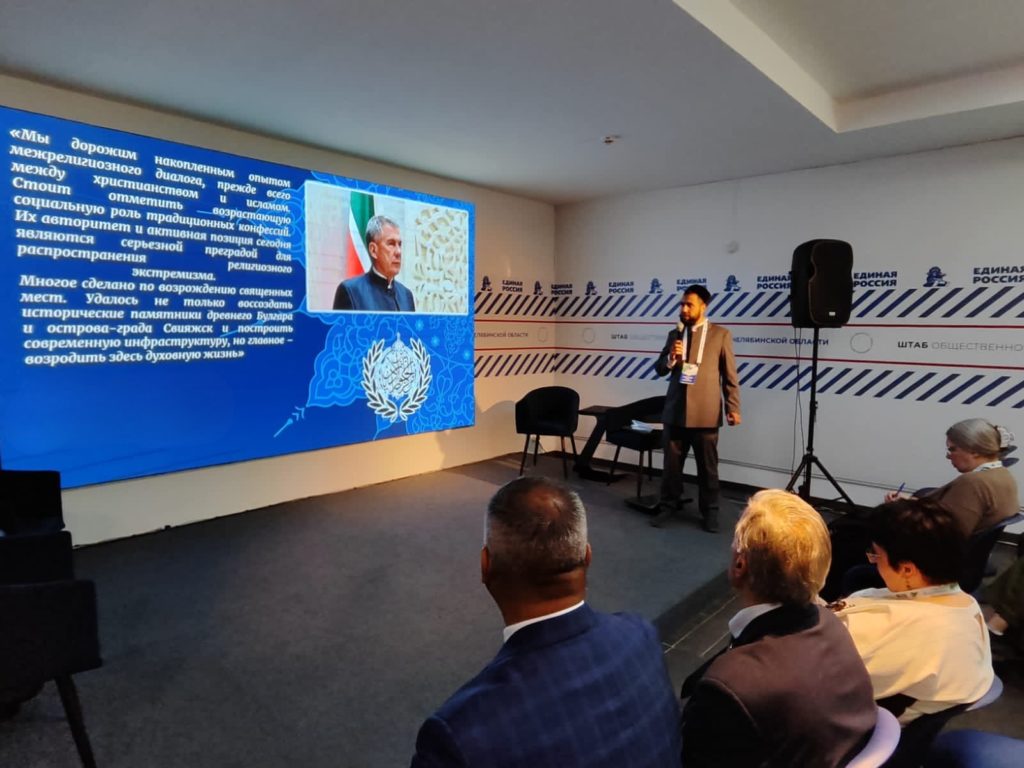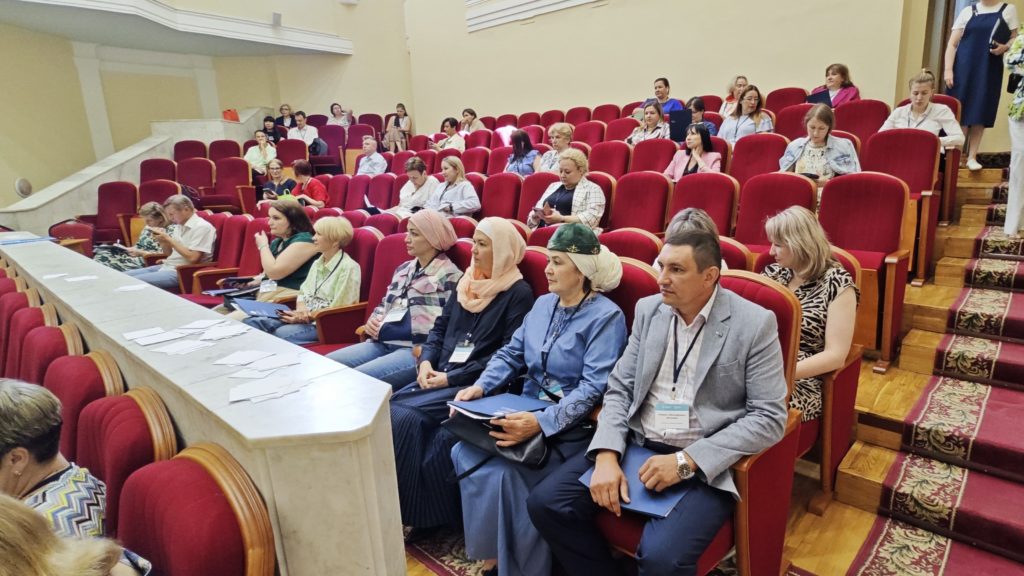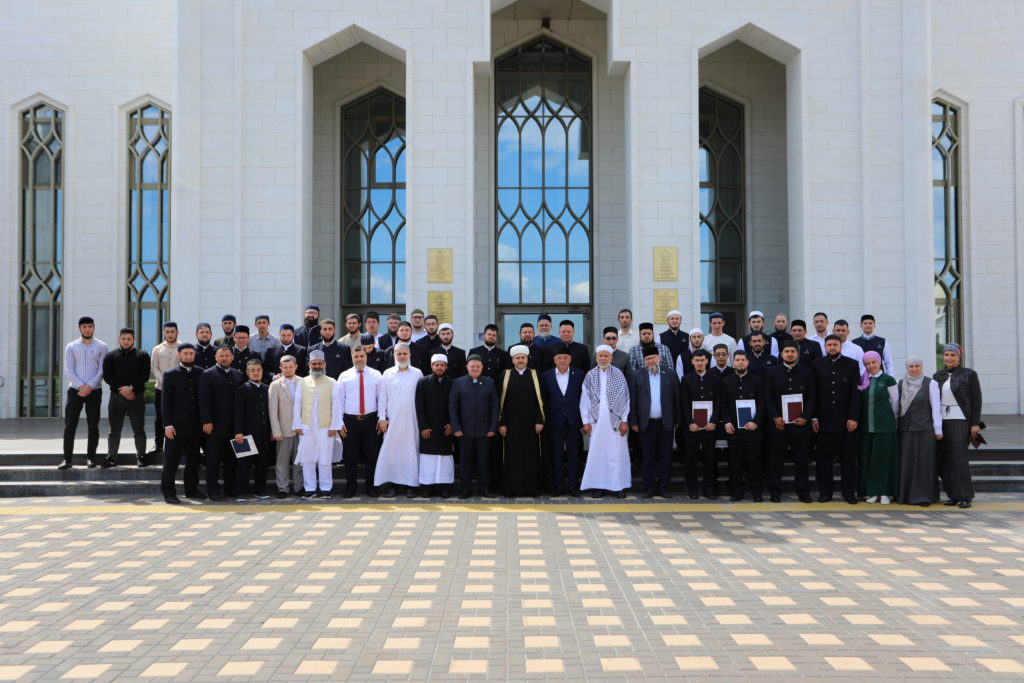On October 27 within the walls of the library of the Bolgar Islamic Academy a creative evening devoted to the classics of Russian poetry, who wrote about Islam, took place. The event was attended by Masters students and staff of the Academy.
During the event the audience learned that many Russian poets were inspired by the Quran, making free poetic translations, glorifying the Islamic doctrine and exalting in their works the qualities and deeds to which the Almighty and the Prophet Muhammad (peace be upon him) called Muslims.
He famous Moscow poet and translator Mikhail Sinelnikov devoted much of his life to the study of Eastern, Islamic motifs in Russian poetry. Thanks to his works, today we have a unique opportunity to get acquainted with the works of Persian, Tajik, Kazakh, Kyrgyz, Azerbaijani and Balkar poets, whose poems he translated into Russian.
As part of the literary evening Masters students read poems collected by Sinelnikov in the book “Imperceptible blessing. Thus, the 1st year master student Artem Sit recited Alexander Veltman’s poem “Muhammad”, dedicated to the life of the Prophet (peace be upon him). 2nd year student Ramil Niyazov introduced the participants of the evening to Islamic motifs in the works of Fyodor Tyutchev, for example, the poem “Oleg’s Shield”, which praises Allah.
Abdullo Shoimov, a 2nd year master’s student, read Andrei Muravyov’s poem “The Song of the Dervish. It is noteworthy that Muravyov himself is considered an Orthodox spiritual writer and church historian, while taking an active interest in Islam and the set of rules that all Muslims follow in their lives.
Yakov Polonsky also addressed the subject of Islam, as described by his first-year master’s student, Muhammad Ikromov. The poet has a collection of poems “Sazandar,” which includes poems inspired by images of the East. Among them is “From the Quran,” which was read out by a master’s student.
The literary evening was concluded by Ildar Tadiev, a 1st year master student, who told the audience that Ivan Bunin traveled extensively in the Muslim East, which resulted in numerous works inspired by the Quran and inspired by impressions of Islamic life. The poem “The Secret” occupies a special place among them and begins with a quotation from the Quran.
